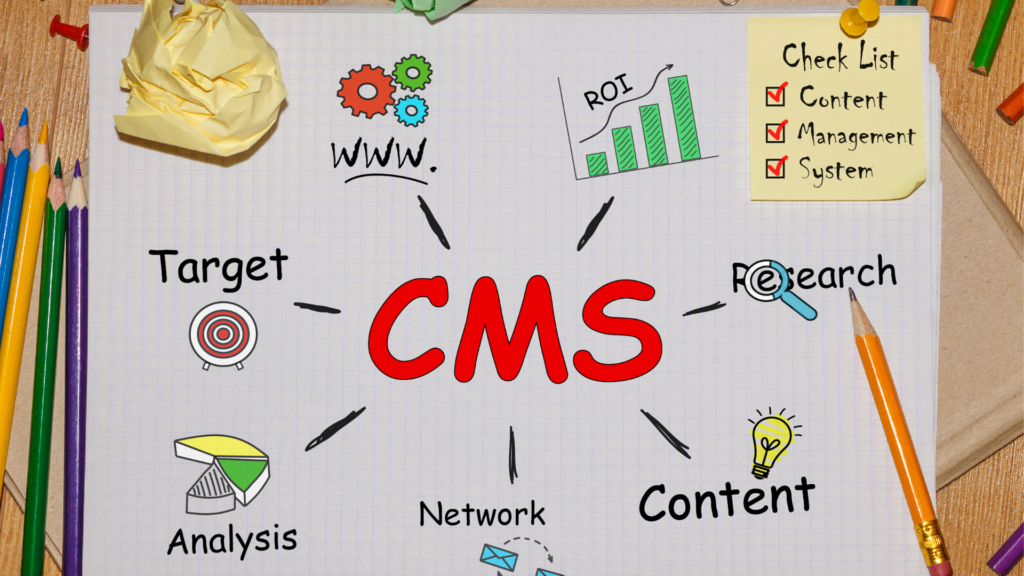CMS in Corporate Businesses: Its Impact on Efficiency and Profit Margins

CMS in Corporate Businesses: Its Impact on Efficiency and Profit Margins
What is CMS?
A Content Management System (CMS) is software that facilitates the creation, editing, and publishing of digital content. The basic functions of CMSs include content management, user permissions, design template creation, and multi-publishing features. These systems enable businesses to manage their content quickly and efficiently, while also speeding up the content production process. By using CMS, brands can simplify the content creation process for social media, websites, and other digital platforms.
CMS applications typically provide users with the ability to create, edit, and publish content. This allows even users without technical knowledge to create and manage websites or blogs. Additionally, most CMSs offer various tools to ensure that content is SEO-friendly, a feature that helps brands increase their online visibility. Businesses can enhance collaboration and communication by facilitating content sharing among different teams through CMS.
There are several types of CMS available. These include open source CMS, closed system CMS, and SaaS (Software as a Service) based CMS options. Open-source CMSs allow users to access the source code for customization, while closed-source systems offer more limited customization options. SaaS-based CMSs typically operate on a subscription model, providing businesses with a secure and easy-to-use platform. Each type of CMS offers different features and advantages, providing solutions tailored to various business needs.
Benefits of CMS for Corporate Businesses
Corporate businesses gain many advantages by using content management systems (CMS). CMS provides efficiency by standardizing and automating business processes. Especially in large-scale businesses, content updates and publishing processes can be time-consuming and complex. CMS simplifies and accelerates these processes. Businesses can manage their content through a single centralized system, saving time and minimizing errors. This enables them to use their resources more efficiently.
Additionally, the reliability provided by a CMS is one of the most important advantages of content management. Whenever a content change is made, all actions performed through the system are traceable. This ensures that the history and effects of changes are recorded and can be reversed if necessary. As a result, full control over the content is maintained.

In addition, CMS usage also enhances teamwork. Multiple users can work on content simultaneously, making collaboration more efficient. Clearly defining team members’ tasks ensures that the project process progresses more smoothly. In addition to all this, CMSs also increase businesses’ interaction with their communities. Businesses gain the ability to collect and analyze user feedback, which enables the continuous improvement of their services and products. Ultimately, CMS usage provides numerous benefits to corporate businesses. These systems optimize both your internal processes and strengthen your external connections.
Ways to Increase Profit Margins
Corporate businesses have the opportunity to increase their profit margins in many areas by using content management systems (CMS). These systems optimize content production processes and increase content efficiency. For example, automated content updates and design templates enable businesses to produce more content in less time. This allows businesses to reduce costs while also increasing revenue by reaching more customers.
Optimizing marketing processes is also an important feature of CMS. CMS systems enable target audience analysis, allowing for the creation of more effective marketing strategies. These systems analyze customer behavior, helping businesses determine which products or services are more popular. This makes it possible to distribute resources more effectively and apply the right marketing techniques.

In addition, improving the customer experience plays a critical role in increasing profit margins. CMS systems enable users to have a more interactive experience with websites. Personalized content recommendations and targeted campaigns increase conversion rates by offering customers more relevant offers. High conversion rates contribute to improved profit margins by increasing direct sales.
On the other hand, the analytics and reporting capabilities offered by content management systems also support businesses in developing their strategies. Regularly analyzing data reveals which strategies are effective and which need improvement. This enables corporate businesses to continuously improve themselves and make healthier decisions to improve profit margins.
Successful CMS Use Cases
Content management systems (CMS) play an important role in the success of corporate businesses. Many large companies have increased their operational efficiency and profit margins by effectively using CMS solutions. For example, when XYZ, a large retail chain, integrated its CMS system, it strengthened its online presence and increased customer engagement. This transformation led to a 30% increase in e-commerce sales. XYZ successfully reached its target audience by offering a user-friendly interface and rich content.
Additionally, ABC Technology Company accelerated product updates by using a CMS system. Thanks to the developed content management strategies, users were able to access real-time information about new products and services. The company achieved a 50% increase in content update speed through this system. Furthermore, by effectively using the CMS system to quickly implement customer feedback, it also succeeded in increasing its profit margin in sales.
Based on these examples, strategic planning is essential for a successful CMS implementation. When selecting a CMS that suits the needs of the business, it is important to consider the user experience and the efficiency of content updates. Additionally, training and support services should not be overlooked when it comes to improving content management processes. Businesses should continuously monitor evolving digital trends and optimize their systems accordingly to maximize the capabilities offered by the CMS system. This way, both efficiency and profit margins can be increased through effective content management.
Son Yazılarımız

Let's Build Your Digital Future Together
The website, brand, and marketing solutions you envision are taking shape here.
